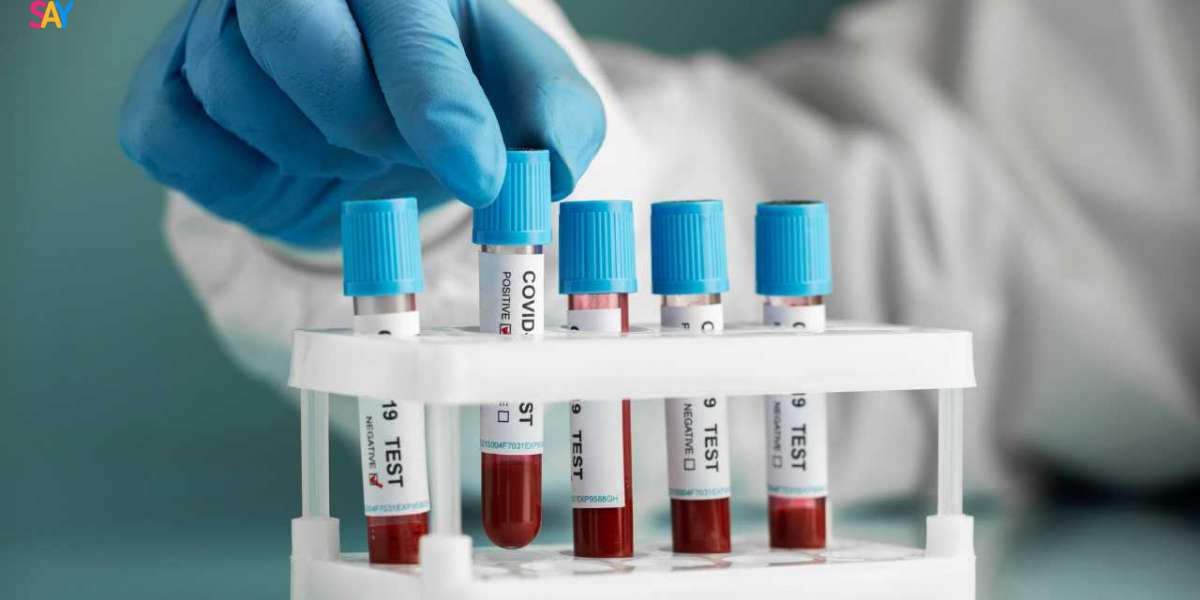Blood Test in Bangalore: A Comprehensive Guide
In today’s fast-paced world, health often takes a backseat. However, ensuring timely check-ups like a blood test in Bangalore can help identify potential health concerns before they escalate. Bangalore, being a metropolitan hub, offers numerous diagnostic services tailored for its bustling population.
Why Blood Tests Are Essential
Blood tests are a cornerstone of medical diagnostics. They provide valuable insights into your overall health, allowing early detection of various diseases. From monitoring chronic conditions to diagnosing acute illnesses, blood tests play a pivotal role.
Common Blood Tests and Their Importance
Blood tests are not one-size-fits-all. Depending on individual needs, various tests are recommended. Below are some of the most common ones:
1. Complete Blood Count (CBC)
The CBC test examines the three types of blood cells: red blood cells, white blood cells, and platelets. It helps detect infections, anemia, and other hematological issues.
2. Lipid Profile
This test assesses cholesterol levels in your blood, crucial for evaluating heart health. It measures LDL (bad cholesterol), HDL (good cholesterol), and triglycerides.
3. Liver Function Test (LFT)
The LFT evaluates liver health by measuring enzymes, proteins, and bilirubin levels. It’s often recommended for those experiencing symptoms like jaundice or abdominal pain.
4. Thyroid Function Test (TFT)
The TFT measures the levels of thyroid hormones, helping diagnose conditions like hyperthyroidism or hypothyroidism.
5. Blood Sugar Test
This test measures glucose levels and is vital for diagnosing and managing diabetes.
Benefits of Regular Blood Tests
- Early Diagnosis: Detect conditions such as anemia, infections, or diabetes early.
- Monitor Health Conditions: Track the progression of chronic diseases.
- Assess Treatment Efficacy: Evaluate how well treatments or medications are working.
- Overall Health Check: Gain insights into your immune system, organs, and more.
How to Prepare for a Blood Test
Preparation is key for accurate results. Here are some tips:
1. Fasting Requirements
Certain tests, like lipid profiles and glucose tests, require fasting for 8-12 hours. Ensure you follow your doctor’s advice.
2. Stay Hydrated
Drink plenty of water before the test. Hydration makes it easier to draw blood.
3. Avoid Alcohol and Caffeine
Alcohol and caffeine can affect test results. Avoid consuming them 24 hours before your test.
4. Discuss Medications
Inform your healthcare provider about any medications you’re taking. Some may interfere with results.
Home Sample Collection Services in Bangalore
The advent of home sample collection services has revolutionized healthcare. If you’re in Bangalore, you can easily schedule a blood test in Bangalore from the comfort of your home.
Benefits of Home Sample Collection
- Convenience: No need to visit a lab; samples are collected at your doorstep.
- Time-Saving: Ideal for those with busy schedules.
- Comfort: Especially beneficial for elderly or immobile patients.
- Safety: Minimizes exposure to crowded places, reducing infection risks.
Choosing the Right Diagnostic Center
With numerous options available, selecting the right diagnostic center is crucial. Here’s what to consider:
1. Accreditation
Ensure the center is accredited by recognized bodies like NABL (National Accreditation Board for Testing and Calibration Laboratories).
2. Qualified Staff
The center should have experienced phlebotomists and lab technicians.
3. Advanced Technology
Look for labs equipped with modern diagnostic tools for accurate results.
4. Online Facilities
Centers offering online reports and appointment scheduling add to convenience.
Interpreting Blood Test Results
Understanding your blood test results can be overwhelming. While doctors provide detailed explanations, here are some basics:
Normal Ranges
Each parameter has a normal range. Values outside this range may indicate a health issue.
Units of Measurement
Blood test results often use specific units like mg/dL or mmol/L. Familiarize yourself with these units.
Abnormal Results
If results are abnormal, consult your doctor immediately for further evaluation and treatment.
Maintaining a Healthy Lifestyle
While blood tests are essential, maintaining a healthy lifestyle is equally important for optimal health.
1. Balanced Diet
Incorporate fruits, vegetables, whole grains, and lean proteins into your meals.
2. Regular Exercise
Aim for at least 30 minutes of moderate exercise daily.
3. Adequate Sleep
Ensure 7-8 hours of quality sleep each night.
4. Regular Check-Ups
Schedule annual health check-ups to monitor your well-being.
Final Thoughts on Blood Tests
A blood test in Bangalore is more than just a diagnostic tool; it’s a proactive step towards better health. With numerous advanced facilities and home collection services, Bangalore residents can access top-notch healthcare without hassle.
FAQs
1. How often should I get a blood test?
It depends on your age, medical history, and health concerns. Generally, annual blood tests are recommended.
2. Are there any risks associated with blood tests?
Blood tests are safe, with minor risks like temporary bruising or discomfort at the puncture site.
3. Can I eat before a blood test?
It depends on the test. Some require fasting, while others do not. Follow your doctor’s instructions.
4. How long do blood test results take?
Results can take anywhere from a few hours to a couple of days, depending on the test.
5. What do high cholesterol levels indicate?
High cholesterol levels may increase the risk of heart disease and stroke.
6. Are home blood test kits accurate?
Home blood test kits are generally accurate but should not replace professional diagnostic tests.
7. Can I exercise before a blood test?
Avoid intense exercise before a blood test, as it may affect certain results.
8. How should I store my blood test report?
Store your reports in a safe, accessible place or use digital storage for easy access.
9. What factors can affect blood test results?
Factors like diet, medications, hydration levels, and stress can influence results.
10. Do blood tests hurt?
Blood tests involve a slight prick, but most people experience minimal discomfort.




